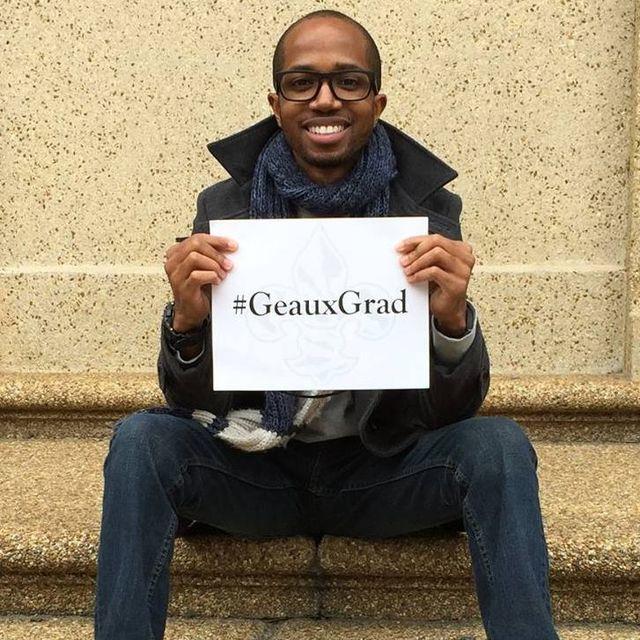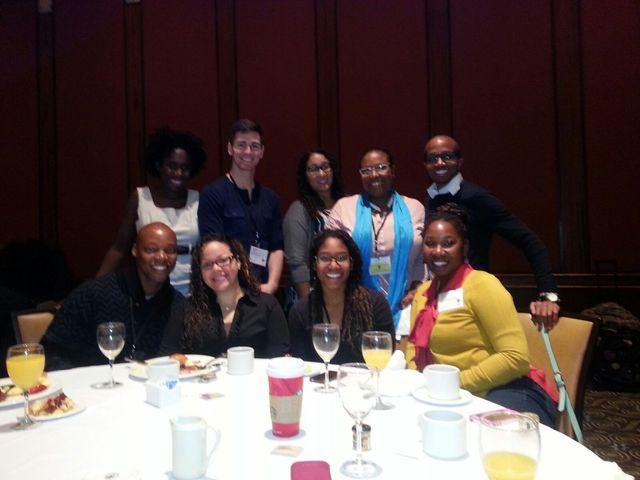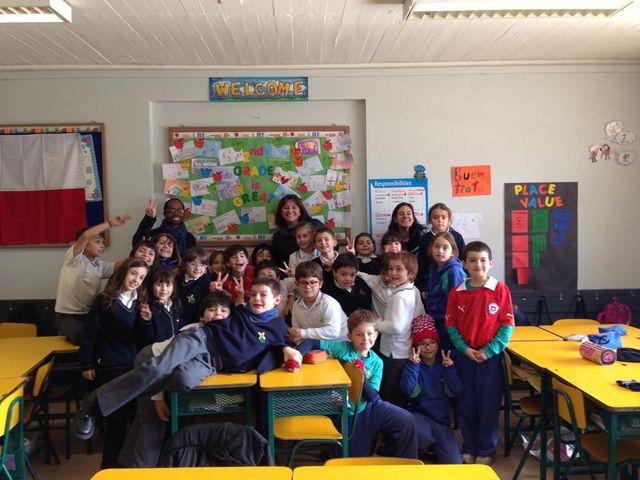Melvin (Jai) Jackson
Teaching Institution: Louisiana State University, Baton Rouge, Louisiana
Field of Study: Educational Research/Higher Education Administration
Melvin Jackson is a Ph.D. Candidate at Louisiana State University. He is majoring in educational research and higher education and is expected to graduate in 2015. He is also president of LSU’s Graduate Student Association and is a mentor of the Black Graduate and Professional Student Association. Read about his current pathway to the Ph.D. below and how he is working with faculty and students to better the campus community.
Initially, what made you want to attend LSU?
Before returning to school, I worked as a student affairs administrator in higher education. I had the opportunity to engage students, faculty and staff from various departments, fields and universities, and in networking, I met several colleagues from LSU. After three years on the job, I realized that in order to continue ascending and succeeding professionally, I needed to avoid the glass ceiling of not having a terminal degree.
In researching various programs, I set out to find a school that paired academic and student life in their mission to help their students succeed. After meeting Dr. Roland Mitchell and other professionals at LSU and hearing their narratives, I fell in love with all that would be possible if I attended LSU. The school, the program, the faculty and those who would become my support system led me to LSU.
How did you come to get involved in extracurricular organizations on campus?
As a student, I’ve always seemed to put my extracurricular involvement before my academic obligations. It’s natural and necessary for me to be involved and able to impact the community. As an undergraduate student, I was actively involved with my fraternity, residence life, student programs, community service, mentoring and intramural sports. I continued much of my involvement into my master’s program, and it only felt right to do it here at LSU. Additionally, I have a hard time remaining idle, and I have an affinity for wanting to help support all that I can. I want to enact change and shake things up to make a better situation for the many.
What roles do you currently hold on campus?
Currently, I serve as the Graduate Student Association president, LSU Bookstore advisory graduate representative, dining services graduate representative, Black Graduate and Professional Student Association mentor, and I represent the LSU Diversity Scholars.
What has been your experience as the president of the Graduate Student Association?
As president of the GSA, it has been absolutely amazing! I could not have asked for a more caring, considerate and hardworking team to serve alongside. In my position, I have the opportunity of working closely with the dean of the graduate school, faculty and staff partners, and most importantly, my fellow graduate students in working to make life as a graduate student at LSU more of a supportive and engaging community. I am truly grateful to have been voted into this position by my peers and friends.
How do you balance all of these activities with the demands of your doctoral program?
I believe one of my best qualities is my pension for working well under pressure. I find it beneficial to juggle multiple projects and responsibilities, and I work best when I have lots of things in the air. Also, I prioritize and make the most of what could be wasted moments throughout my day. It never hurts to keep a set of flashcards to study as I am walking from meeting to class. Also, I recognize and acknowledge that my main responsibility is to be a student and a student first. I know that when things get overwhelming, the first thing I need to tackle is my academic life.
How has the SREB Doctoral Scholars Program impacted the pursuit of your doctorate?
The SREB Doctoral Scholars Program has given me a strong and supportive foundation for which I have built my dreams of a doctoral degree. The program has given me support and encouragement. It has held me accountable to my dreams. This program has united me with like-minded individuals of which all are aspiring for greater heights than mediocrity. The DSP and its staff (along with those who support the program on the LSU campus) have become coaches, mentors and family as I work to achieve what was once thought impossible, improbable, and for me, incapable.
Why do you feel it is important for minority students to take on leadership roles on their campuses?
An actively involved student is a student who challenges the status quo. That student has an active agenda on campus and works to be held accountable for their scholarship and their extracurricular involvement. It is essential that minority students seek and engage in leadership roles, because of the message it sends to the hundreds or thousands of individuals standing back and watching them succeed. It says that regardless of my race, gender, or any other factors one may use to demean and demote me, I am present and actively making a difference. Through our leadership in campus organizations and in the community, we subvert the dominant narrative that believes we are “affirmative action” cases. We command the respect of those who would doubt us, and we challenge history to re-write itself with pictures of all our faces.
LSU dean Dr. Gary Byerly told us about your achievements at LSU. One of the events that he praised you for was your involvement in a service and teaching trip to Chile. What was that experience like?
During the summer of 2014, I, along with several other LSU students and faculty, traveled to Concepcion and Santiago, Chile as a teaching and service experience. On the trip, I served as a graduate coordinator and worked closely with the school administrators in identifying opportunities to improve the administrative functions of the school in Concepcion, (Colegio Concepcion San Pedro). Additionally, I taught second and third grades in Santiago at the Southern Cross School. This trip was an opportunity to explore how education is approached in a different country and also to make connections with higher education professionals in Chile to engage in a conversation on a comparative analysis of our two systems. In terms of service, we worked with the LSU Coastal Roots program to plant native trees and sea grasses with elementary and high school students in areas that were affected by the tsunami that struck Chile in 2010.
What advice would you give to those that are also trying to find the balance between academics, extracurricular activities, and other demands?
For my fellow students, professionals and people who are seeking a sustainable balance between academics, extracurricular activities and life as a whole, I would say to them that you have to prioritize and practice satisficing. Mainly, you have to prioritize your day in order of importance to you. If that is family, put them at the top of your task list. If it is school, follow a similar path and so on. Make priorities out of the things that truly mean and matter the most to you. I love my family, but they also know how important school is to me right now. So, they never put me in a position to choose a weekend at home over a weekend writing a much needed paper. It may be different for others, but put your priorities first. As for satisficing, I learned a long time ago that I would never be able to please everybody with every task I complete, every time. I had to come to an acceptable medium in recognizing that I can’t be everybody’s everything. I understand that it is okay to say, “No” or “Not today.” Also, there are such things as happy mediums — find them! They exist, like unicorns.




